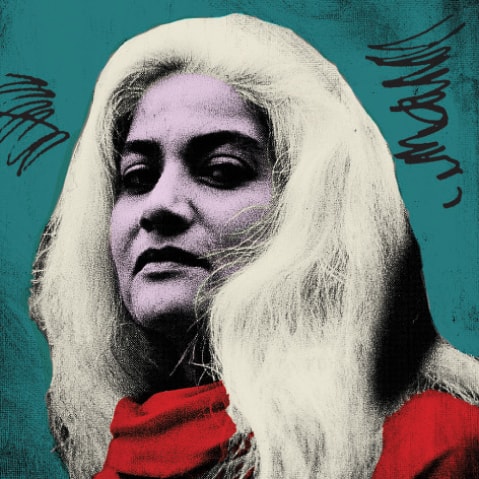
Leonardo da Vinci’s notebooks have probably brought him more fame with academics than the 15 paintings he made in his lifetime. Filled with investigations of anatomy, botany, geology and mathematics as well as inventions for bridges, flying machines, war machines, submarines, musical instruments, they continue to be relevant even today. A small hand-bound notebook was always tied to his belt at all times, ready to jot down ideas, observations and a things-to-do list.
The pocket notebook was also a fixture of many writers, scientists, soldiers and statesmen, including Charles Robert Darwin, Ernest Miller Hemmingway, Ludwig van Beethoven and George Walton Lucas. It came to be seen as a masculine accessory.
William Somerset Maugham kept a writer’s notebook in which he wrote sketches of people he met who might make it into his next novel. Frieda Kahlo, Paul Klee and Pablo Ruiz Picasso’s notebooks, like that of most artists were not only part of the creative process but were also a “friend” in difficult personal times. Picasso said, “Painting is just another way of keeping a diary.” The diaries of Anne Frank, Samuel Pepys, Captain Scott and Nelson Mandela are considered literary as well as historical texts.
The diary is a more personal form of a notebook. Since it is rarely intended to be shared, it can be candid, expressive and unfiltered. Oscar Wilde famously said, “I never travel without my diary. One should always have something sensational to read in the train.” Virginia Woolf observed, “Writing for no audience — writing just to write — is great practice. It loosens the ligaments.”
Coming across old diaries and letters has a breath-catching intimacy no conversations or anecdotes can live up to. One enters, as if by invitation, into the personal life of the diarist.
Walter Scott writes, “What is a diary as a rule? It is a document useful to the person who keeps it. Dull to the contemporary who reads it and invaluable to the student, centuries afterwards, who treasures it.”
Coming across old diaries and letters has a breath-catching intimacy no conversations or anecdotes can live up to. One enters, as if by invitation, into the personal life of the diarist. It’s a startling experience to see life through another’s eyes. Diaries and letters have increasingly become primary sources not just for sociologists and psychologists, but for historians revising the politically motivated histories of the past. Despite personal biases and a degree of opacity, events recorded can be compared and authenticated. A letter from my father’s uncle starts with how painful his legs were and then, at the turn of a page, is a harrowing description of the massacre during the annexation of Hyderabad Deccan after the Partition of India.
The Mughal emperors from Babar to Aurangzeb were clearly aware of making history and recorded every aspect of their lives. Babar would sit in his tent after a day’s battle writing his diary revealing a sensitive poetic mind. Through his diaries we learn about the people and landscape of 16th century India, the Hindu ascetics of Bagram, that there were rhinoceroses around them, and the first account of the famous Kohinoor diamond. His grandson, Akbar, not only chronicled his own reign, he honoured the founder of the empire he inherited — by commissioning the translation of Babar’s memoirs from Chagatai (an extinct Turkic language which was once widely spoken in Central Asia) into Persian— and inviting an array of the best miniature artists to illustrate it.
Queen Victoria’s private journals, kept from the age of 13 to her death in 1901, are an unusual insight into the personal emotions of a ruler: “Here I sit lonely and desolate, who so need love and tenderness.”
Pillow books or zuihitsu, written by women in medieval Japan, and diaries written by the wives of European colonists and early American settlers are valuable accounts of everyday life. A detailed diary kept by Mrs R. C. Germon during the 1857 siege of Lucknow is a vivid account of the impact of the ‘mutiny’ on besieged British residents. Ghalib’s letters of the same period present the devastating impact on Dehli’s local residents.
Libraries keep large sections of diaries and letters for researchers for this. The ancient texts of India are not in a time frame and it is difficult to separate fact and myth. We turn to the journals of travellers such as Nearchus 326-324 BC, Megasthenes 302 -298 BC, the unknown author of Periplus written somewhere between 1-3 AD, Fa Hsein 399-414 AD, Xuanzang in the seventh century, Al-Beruni in the 11th century, Marco Polo in the late 13th century, and British and French accounts from the 17th to 20th centuries.
The genre of aap beeti or autobiography is widespread, but filtered in a way diaries are not. As we mark 70 years of the Partition of India, there has been a flurry of interviews of the Partition generation on both sides of the border. Pakistan itself has gone through dramatic changes in its seven decades that have not been officially recorded except for the dry facts of dates and events. While we still have three adult generations from the inception of Pakistan, diaries need to be collected of each era and memoirs written. The Citizens Archive of Pakistan has begun the process, but it’s a slow process. We all have old photographs, elders in the family and letters and diaries. Even the younger generation need to realise they are making history, and value their experiences and observations by recording them.
Durriya Kazi is a Karachi-based artist and heads the department of visual studies at the University of Karachi
Email: durriyakazi1918@gmail.com
Published in Dawn, EOS, July 29th, 2018













































